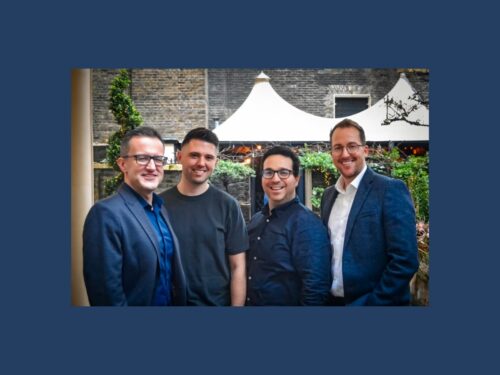If you are struggling to train and retain your technicians, then you might need Netmatters’ Skills Bootcamp. Our...
Future-proofing businesses with skills is key to driving region’s net zero economy
Investing in skills and empowering businesses to innovate, access new markets and reach net zero are at the heart of a new economic strategy launched by New Anglia Local Enterprise Partnership.
An “ambitious blueprint for the UK’s clean growth region”, the Norfolk & Suffolk Economic Strategy aims to accelerate our economy’s transition to a zero-carbon economy and upskill our workforce for inclusive growth which will benefit everyone.
The document has been developed to align with Government’s Build Back Better Plan for Growth which sets out three pillars of growth – infrastructure, skills, and innovation – and their three long-term policy objectives – levelling up, supporting net zero and global Britain.
Developed in partnership with businesses, business support organisations, local authorities, VCSE organisations, colleges, and universities, it looks to 2036 but focuses on the actions needed for the next three to five years. More than 650 people joined 100 engagement sessions in summer and autumn 2021 to feed into the new strategy.
Salaries in clean growth jobs across the two counties are 25% higher than the national average and a key priority of the plan is to deliver the workforce required for these roles. The LEP has begun mapping the green jobs of the future and how schools and colleges need to develop their curricula to meet this demand.
Adastral Park provides cutting-edge digital skills for people looking to pursue careers in ICT, as well as exploring digital health and smart living research innovations. Local partners will work together to deliver the Adastral Park vision and liaise with the Department of International Trade to maximise the prospects arising from the HPO (High Potential Opportunities) in 5G and digitalisation.
Freeport East will accelerate the UK’s gateway to Asia and Europe, both in trade and investment, while establishing itself as a key component of the UK’s hydrogen strategy and drive towards net zero. Comprising three Tax Sites at Felixstowe, Harwich, and Gateway 14 together with seven Customs Sites, Freeport East can be developed at pace and provide the capability for businesses to promote Global Britain internationally while providing a return on investment. Over £300m of private sector funding will be unlocked, resulting in over 13,500 new jobs.
The Southern North Sea is the UK’s natural gas basin, with a third of the UK’s domestic gas requirements handled at Bacton Gas Terminal in north Norfolk. Recent Oil and Gas Authority and Hydrogen East reports have highlighted Bacton’s potential to become a significant hydrogen production site for London and the South East, stimulating local markets for clean transport solutions and decarbonising the regional economy.
In our agri-food sector, controlled environment farming is an emerging specialism, especially with Bom Group’s tomato greenhouses in Cantley and Ingham and the development of the UK’s largest vertical farm at the Food Enterprise Park near Norwich.
There are also game-changing capabilities for agri-food businesses to take advantage of including 5G, satellite applications, robotics, and drones on offer at Adastral Park and the wider Connected Innovation network. This adoption of technology would improve productivity and sustainability across the supply chain and could address labour challenges and create high-skilled, high-paid jobs.
C-J Green, Chair of New Anglia LEP, said: “Clean growth is central to this strategy which looks to drive forward the region’s efforts to support and deliver a net zero economy, as well as capitalising on new markets and employment opportunities.
“Our region has nationally recognised strengths in clean energy, agri-food and ICT digital creative which continue to present significant opportunities, and businesses will need to be supported if they are to take advantage.
“However, it is crucial that the clean growth we achieve is inclusive and that everyone can access jobs, upskill and reskill. We want to transform this region into the best place to live, learn, work and succeed in business.”
Councillor Carl Smith, Chair of Norfolk Public Sector Leaders Group, said: “This region has ambitions to become the UK’s leading clean growth region and this strategy reflects that and sets out how that will be achieved.
“Norfolk is at the forefront of the clean energy revolution and has already been earmarked as a prime location for significant hydrogen production. We also have world-class centres in manufacturing and engineering, scientific research and agri-tech, and this plan aims to maximise the potential in these and other growing sectors.”
Councillor Suzie Morley, Chair of Suffolk Public Sector Leaders Group, said: “This strategy will set Suffolk on the right track to fulfil its enormous potential and give businesses the support they need to innovate and reach new markets.
“Key to support will be ensuring businesses have the right people and skills, particularly in digital and innovative technologies, through our colleges and universities and centres of excellence such as Adastral Park. This plan recognises that.”
The latest strategy replaces and consolidates the 2017 Economic Strategy, Local Industrial Strategy, and the Restart plan into one, and has been updated to take account of the current social and economic challenges and opportunities.
It also recognises the importance of underpinning specific sectors: Advanced Manufacturing and Engineering, Construction and Development, Creative Industries, Financial Services, Insurance and Professional Services, Health and Social Care, Life Sciences and Biotech, Ports and Logistics, Visitor Economy, and Voluntary Community and Social Enterprise.
You can read the Norfolk and Suffolk Economic Strategy here and the executive summary here
Do Your Team Need Coding & Web Development Training?
Amazon Agency Optimizon Continues Expansion with Strategic Acquisition of Marketplace Power
LONDON – Optimizon, a leading Amazon and e-commerce agency in the UK, is thrilled to announce the successful...
Cambridge Wide Open Day returns with ‘Be Curious’ Sci-Tech City-wide event
LEADING science companies and innovation parks will once again open their doors to showcase their contribution to...




